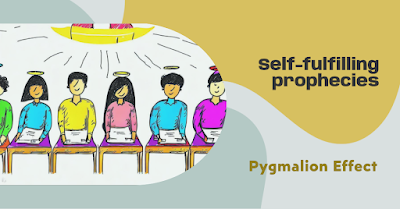The overconfidence effect is a cognitive bias granting a much higher level of confidence to one's judgments than is supported by observable evidence. Overconfidence is also referred to a miscalibrated judgemental confidence (Dunning et al., 1990).
Dunning and others (1990) provided evidence that people are generally overconfident.
The effects of overconfidence may be as trivial as losing at a game or small wager. Of course, the effects can be substantial when the overconfident person makes judgements that influence their nation at war or a major investment of their company's resources.
Types of Overconfidence
Researchers have suggested there are different types of overconfidence. For a review, see Moore and Healy (2008).
Overestimation is a widely studied type of overconfidence in which people overestimate their abilities, how well they performed, their degree of control over an outcome, or their odds of success in business. Bregu (2020) summarized two findings regarding overconfidence and trading. Overconfidence was linked to "higher trading volume and weakly damages profits." People overestimate the value of their houses, vehicles, and net worth.
Overprecision is a persistent finding that people are biased toward certainty in their decisions such as clinical diagnoses and financial trading (Haran et al., 2023). When asked to add a confidence interval to a quantifiable estimate, people generally create a much smaller range than is reasonable. For example, students and professionals offer over precise deadlines.
Overplacement is the belief that one is better than others or better than average. Overplacement can lead to experiences of rejection when seeking entry to highly competitive educational, sports, or career paths.
In their review paper, Moore and Healy (2008) offer a useful perspective on "the trouble with overconfidence."
Our theory, in brief, is this: People often have imperfect information about their own performances, abilities, or chance of success. However, they have even worse information about others. As a result, people’s estimates of themselves are regressive, and their estimates of others are even more regressive. Consequently, when performance is high, people will underestimate their own performances, underestimate others even more so, and thus believe that they are better than others. When performance is low, people will overestimate themselves, overestimate others even more so, and thus believe that they are worse than others. (p. 503)
Overconfidence and Religion
Li (2023) noted that cueing God concepts promotes feelings of safety. In a series of studies, Li found that the relationship between activated God concepts led to overconfidence and was mediated by a sense of security.
Religious scholar, Peter Enns, captured one type of religious overconfidence in his aptly titled book, The Sin of Certainty.
An example of overprecision is the occasional Christian leader who has announced the precise time of Jesus' return to the earth.
References
Bregu, K. (2020). Overconfidence and (Over)Trading: The effect of feedback on trading behavior. Journal of Behavioral and Experimental Economics, 88. https://doi.org/10.1016/j.socec.2020.101598
Dunning, D., Griffin, D. W., Milojkovic, J.
D., & Ross, L. (1990). The overconfidence effect in social
prediction. Journal of Personality and Social Psychology, 58(4),
568–581. https://doi.org/10.1037/0022-3514.58.4.568
Haran, U., Moore, D. A., & Morewedge,
C. K. (2010). A simple remedy for overprecision in judgment. Judgment
and Decision Making, 5(7), 467–476.
https://doi.org/10.1017/S1930297500001637
Li, H. (2023). Let god judge between me and
thee: Activating god-related concepts increases overconfidence in Chinese han
and bai people. International Journal for the Psychology of Religion.
https://doi.org/10.1080/10508619.2023.2168935
Moore, D. A., & Healy, P. J. (2008).
The trouble with overconfidence. Psychological Review, 115(2),
502–517. https://doi.org/10.1037/0033-295X.115.2.502








